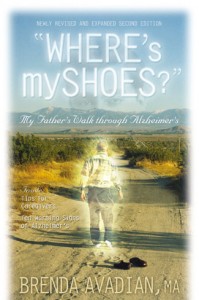The Caregiver’s Voice answers questions about preventing abuse in nursing homes.
How do my sisters, brother, and I ensure that Mom won’t be abused in the nursing home?
Most of the time we can rest assured our loved ones will be well cared for in a nursing home. However, there are those rare instances, statistically speaking (which have no relevance when it is your family member who is suffering) when neglect of a loved one ends up needlessly stressing family members who are already suffering from frequent pangs of guilt at needing to place a loved one. Unfortunately, my husband and I had such an experience.
Only twelve hours after we placed my father, he disappeared from the secure facility. My husband and I were scared. There is no shortage of accounts of loved ones wandering off and later found dead, some within a half-mile.
Fortunately, a driver spotted my father walking along the freeway in the Mojave Desert on a cold January night. He was trying to go home to Milwaukee, Wisconsin.
When we returned to the nursing home, the administrator insisted they couldn’t care for him. We became ensnared by a nightmare for several weeks–attorneys, the ombudsman, and threats. Time began to heal the scars left by confrontation and my father was allowed to stay.
Still, I remained fearful that he might be abused.
When instances like this occur, it is best for families to get involved and hold the administrator and the staff accountable. I kept emphasizing the need to have them admit their mistake in order for them to be able to take review and then follow their carefully designed procedures. It was difficult getting this management to do both, but I kept after them. The fact was the director of nurses and the administrator rarely had direct contact with my father.
It’s really about people caring for people. When we look at it this way, we can step beyond management’s rigidity and uncooperativeness and look at the goodness among those–the certified nurse’s aides (CNAs)–who provide direct care for our loved ones.
My father’s caregivers adored him and felt awful about his great escape.
Why do many incidents go unreported?
Consider our situation above. We never reported the incident to the Department of Health Services.
The nursing home was the only place that met our need of a secure twenty-four-hour facility at the time. Attacking management and trying to seek restitution or seeking other measures of disciplinary action would have likely incensed this management making things worse for my father. Plus, we’d have to move him to another city affecting the frequency with which we could visit him. My father would suffer.
Instead, and in hindsight, we took a more difficult route.
We did what any effective manager would do–monitored performance and gave encouraging feedback to the staff.
We let the staff know how important they were to our peace of mind and how we appreciated the loving care they provided my father. Eventually, new owners took over and the old management was out.
TIPS to prevent elder abuse when your loved one is cared for by someone else:
- Be present.
- Visit often.
Visit at least twice a week. If you can’t, ask a friend to visit.- Talk regularly with staff members who provide care for your loved one in order to build a personal relationship.
Tell them about your loved one’s years as a vibrant and contributing member of society. This will enable them to get a feeling for the whole person–not just the impaired one, for whom they provide care.- It doesn’t hurt to bring in treats every once in a while.
I talked my husband into doing a 24-hour round-the-clock lunch for the nursing staff. We ordered pizzas and sodas and personally delivered them at lunch time for each of the three shifts. The night shift was in tears admitting they rarely see family let alone family members who bring them lunch past midnight! (For more information, see “Where’s my shoes?” link below.)- Treat the staff with respect and express how much you appreciate the care they provide for your loved one–assuming you do!
With the average hourly wage for a full-time nursing home caregiver at less than $11 an hour across the US (almost $22,000 a year), many are exhausted after taking on other work in order to support their families. A little consistent appreciation goes a long way!
Bottom Line: Develop personal connections with the people you depend upon to provide quality care for your loved one.
For more information…
- “The Great Escape” and the 24-hour lunch for the nursing home staff is detailed in: “Where’s my shoes?” My Father’s Walk through Alzheimer’s
- The Guiltless Senior Housing Decision – Noted Author and Caregiver offers provocative insight. [3/5/2025 URL Unavailable: BlogTalkRadio ceased operations in January 2025.]
- A related piece at the New York Times [TCV Update 6/22/2022: URL no longer available] might prove informative for couples facing the expense of nursing care for one of them. How do married and retired baby boomers finance full-time care in a nursing home for one of them?









